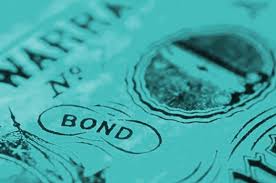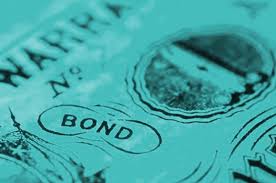
To make arrangements for the first international bond sale, Saudi Arabia appointed JPMorgan Chase & Co., HSBC Holdings Plc and Citigroup Inc., says several media sources quoting people with knowledge of the matter.
According to the people, who asked not to be identified as the decision isn’t public the banks are acting as global coordinators on the issue. The sources further said that later as joint lead arrangers and bookrunners on the deal, more banks could be added. While lead arrangers buy debt and sell it to other banks, global coordinators have a key role in overseeing the deal.
The kingdom of Saudi Arabia will probably wait until after the summer before selling the bonds, two of the sources confirmed to the media that the decision on the mandates was made on Saturday night. Separate people familiar said earlier this month that the nation is preparing for a sale of at least $10 billion.
HSBC, JPMorgan, Citi and Saudi Arabia’s finance ministry declined to comment.
A number of countries of the six-nation Gulf Cooperation Council have been tapping foreign markets to plug budget deficits and Saudi Arabia is poised to join the band. As an era of oil-fueled abundance falters after crude prices slumped, the kingdom is shoring up its finances. Minister of State Mohammad bin Abdulmalik Al-Sheikh said during a meeting between Bloomberg News and the Deputy Crown Prince Mohammed bin Salman in April that the country plans to tap international debt markets as early as September.
After losing as much as 72 cents earlier, West Texas Intermediate for August delivery was down 8 cents, at 2:03 p.m. Hong Kong time and was at $47.56 a barrel on the New York Mercantile Exchange. The contract fell $2.47 to $47.64 on Friday.
"I expect the Saudi Arabia bond deal to be well received, albeit at a price. The hunt-for-yield in a world infected with negative rates will probably see good demand for a name like Saudi Arabia that has a strong credit rating and will likely offer attractive returns," Anita Yadav, head of fixed-income research at Emirates NBD said.
A $10 billion loan from a group of U.S., European, Japanese and Chinese banks was sealed by it in April in what is its first in at least 15 years, sources with knowledge of the matter had said at that time. Various sources had told the media earlier in June that once Ramadan ends next month, the bond sale being considered now would probably come in five-, 10- and 30-year bonds.
Apart from raising money on international capital markets, Saudi Arabia has been selling local debt and drawing down foreign reserves with the intention to cover a budget shortfall estimated at about $100 billion this year. An economic transformation plan that includes increasing government debt to 30 percent of economic output by 2020 from 7.7 percent has also been outlined by the country. .
(Source:www.bloomberg.com)
According to the people, who asked not to be identified as the decision isn’t public the banks are acting as global coordinators on the issue. The sources further said that later as joint lead arrangers and bookrunners on the deal, more banks could be added. While lead arrangers buy debt and sell it to other banks, global coordinators have a key role in overseeing the deal.
The kingdom of Saudi Arabia will probably wait until after the summer before selling the bonds, two of the sources confirmed to the media that the decision on the mandates was made on Saturday night. Separate people familiar said earlier this month that the nation is preparing for a sale of at least $10 billion.
HSBC, JPMorgan, Citi and Saudi Arabia’s finance ministry declined to comment.
A number of countries of the six-nation Gulf Cooperation Council have been tapping foreign markets to plug budget deficits and Saudi Arabia is poised to join the band. As an era of oil-fueled abundance falters after crude prices slumped, the kingdom is shoring up its finances. Minister of State Mohammad bin Abdulmalik Al-Sheikh said during a meeting between Bloomberg News and the Deputy Crown Prince Mohammed bin Salman in April that the country plans to tap international debt markets as early as September.
After losing as much as 72 cents earlier, West Texas Intermediate for August delivery was down 8 cents, at 2:03 p.m. Hong Kong time and was at $47.56 a barrel on the New York Mercantile Exchange. The contract fell $2.47 to $47.64 on Friday.
"I expect the Saudi Arabia bond deal to be well received, albeit at a price. The hunt-for-yield in a world infected with negative rates will probably see good demand for a name like Saudi Arabia that has a strong credit rating and will likely offer attractive returns," Anita Yadav, head of fixed-income research at Emirates NBD said.
A $10 billion loan from a group of U.S., European, Japanese and Chinese banks was sealed by it in April in what is its first in at least 15 years, sources with knowledge of the matter had said at that time. Various sources had told the media earlier in June that once Ramadan ends next month, the bond sale being considered now would probably come in five-, 10- and 30-year bonds.
Apart from raising money on international capital markets, Saudi Arabia has been selling local debt and drawing down foreign reserves with the intention to cover a budget shortfall estimated at about $100 billion this year. An economic transformation plan that includes increasing government debt to 30 percent of economic output by 2020 from 7.7 percent has also been outlined by the country. .
(Source:www.bloomberg.com)














